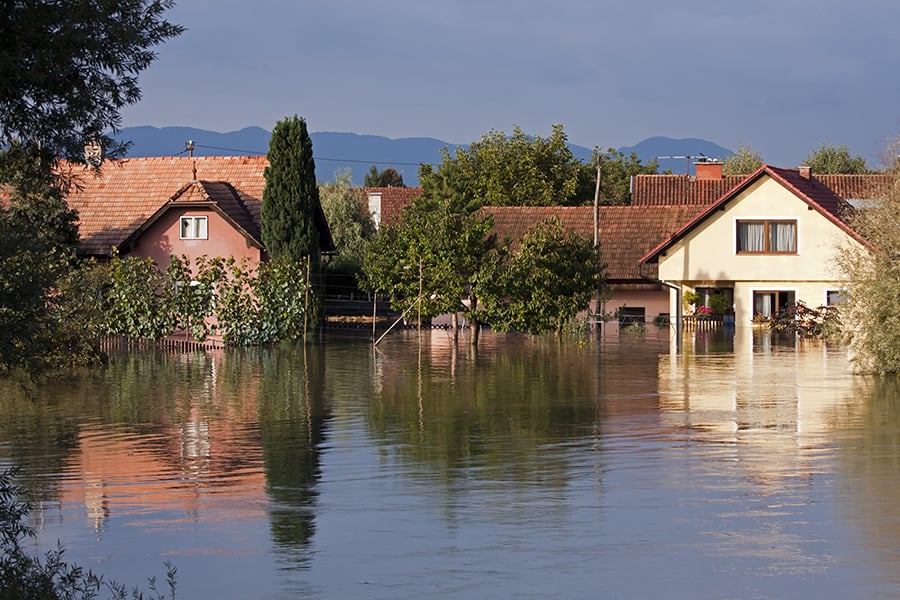Flip Burgers with Mother Nature – Grill Green This Summer
Going Green at the Grill Is Easy, Tastes Great and Helps Saves the Planet One Bite at a Time
 (ARA) – Each spring, millions of grilling enthusiasts dust off the grill in anticipation of another fun-filled summer of backyard barbecues. But at what cost to the environment? According to Sierra magazine, the estimated 60 million barbecues held on the Fourth of July alone in the U.S. consume enough energy — in the forms of charcoal, lighter fluid, gas and electricity — to power 20,000 households for a year.
(ARA) – Each spring, millions of grilling enthusiasts dust off the grill in anticipation of another fun-filled summer of backyard barbecues. But at what cost to the environment? According to Sierra magazine, the estimated 60 million barbecues held on the Fourth of July alone in the U.S. consume enough energy — in the forms of charcoal, lighter fluid, gas and electricity — to power 20,000 households for a year. If this statistic has your grilling outlook going from sunny to overcast, don’t panic. It’s quite easy to minimize your environmental impact while grilling by taking a few simple steps that won’t diminish your grilling experience. Yes, you too can grill green, and these simple tips will help you get your grill on while keeping Mother Earth on your good side. After all, charcoal has been in use since the days of Henry Ford, but you’re not still driving a Model T, are you?
One of the biggest factors in grilling green is the fuel source used to grill. All grilling fuels use natural resources and emit pollutants into the environment, but some do so at a much greater cost than others. Charcoal grills and lighter fluid contribute more to ground-level ozone, which is produced when nitrogen oxides and volatile organic chemicals combine in hot weather conditions. In addition, charcoal produces more carbon monoxide and particulates than other grilling options.
 Though gas grills offer one of the quickest ways to barbecue, the grills can be expensive to purchase, liquid propane gas is a non-renewable fossil fuel and many a barbecue have been put on hold due to empty propane tank syndrome. But charcoal and gas aren’t the only fuel sources to consider when grilling. Recent innovations in the industry have opened the door to a greener grilling experience.
Though gas grills offer one of the quickest ways to barbecue, the grills can be expensive to purchase, liquid propane gas is a non-renewable fossil fuel and many a barbecue have been put on hold due to empty propane tank syndrome. But charcoal and gas aren’t the only fuel sources to consider when grilling. Recent innovations in the industry have opened the door to a greener grilling experience.
One such innovation is the FlameDisk — a charcoal alternative made from solid ethanol, a renewable biofuel. Food grilled on the FlameDisk tastes just like it was grilled over charcoal, but using this eco-friendly grill fuel emits 99 percent less carbon monoxide and 91 percent fewer VOCs than grilling with charcoal. Plus the by-products created when ethanol is burned include only water and a modest amount of carbon dioxide.
And unlike lighter fluid and propane gas, the FlameDisk is not derived from non-renewable petroleum. Wood is another green grill fuel option, but like charcoal it burns dirty, producing tiny soot particles that pollute the air and can cause health problems. However, unlike charcoal, the ash from wood can be disposed of in your garden, and is a greener option when obtained from a sustainable source like hickory or mesquite.
Your selection of grilling accessories also determines how much impact your grilling experience has on the environment. Not only can using real plates and silverware add some class to your next cookout, you’ll be reducing your waste by steering clear of the paper and plastic. In addition, many highly biodegradable disposable options have recently become available on the market. If you’re wrapping food in aluminum foil, consider using 100 percent recycled aluminum. Cleanup can be both easy and green when you use natural cleaners, many of which you can make safely and affordably in your own kitchen using common ingredients like vinegar, baking soda, lemon juice and water.
While charcoal reigned supreme in the days of Henry Ford, there’s no reason the modern day barbecue can’t save the earth one burger or tofu dog at a time. While no one expects you to cook your next turkey with a solar oven, it’s just good sense to consider grilling green as an eco-friendly barbecue option in the 21st century. While it might not be as green as switching over to a hybrid car, any reduction in your carbon footprint can make a difference over time. So move over charcoal, here comes something greener!
For more information on the FlameDisk and how you can grill green this summer, go to www.FlameDisk.com.
Courtesy of ARAcontent







